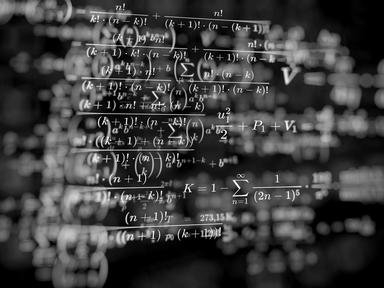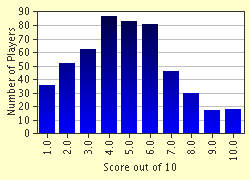Quiz Answer Key and Fun Facts
1. Which of the following is not a branch of mathematics?
2. If the countdown yesterday was 120 days before the New Year, what is the date today?
3. What do you call the inverse function of the exponential function?
4. What is the radius of the unit circle?
5. If GEOMETRY means 'earth measurement', what does TRIGONOMETRY mean?
6. The numbers in the sequence 1, 3, 6, 10, 15, ... are called triangular numbers while the square numbers are of course 1, 4, 9, 16, 25, .... The number 1 is of course both triangular and square. So is 36. What is the next number with such a property?
7. If common logarithms have 10 as their base, what is the base of the natural logarithms?
8. The sum of all the interior angles of a convex polygon is 3000 degrees. How many sides does the polygon have?
9. A: How many children do you have? B: Three. A: How old are they? B: Well, I'll tell you this. The product of their ages is 36. A: Hmm... I don't know. B: The sum of their ages is the same as our house number. A: I know your house number but still don't know the answer. B: Okay then. My eldest child is a vegetarian. A: Ahh... Now, I know. So, how old are B's children?
10. The sum of the first 25 positive integers is 325. What is the sum of the cubes of the first 25 positive integers?
Source: Author
tropangadam
This quiz was reviewed by FunTrivia editor
rossian before going online.
Any errors found in FunTrivia content are routinely corrected through our feedback system.

